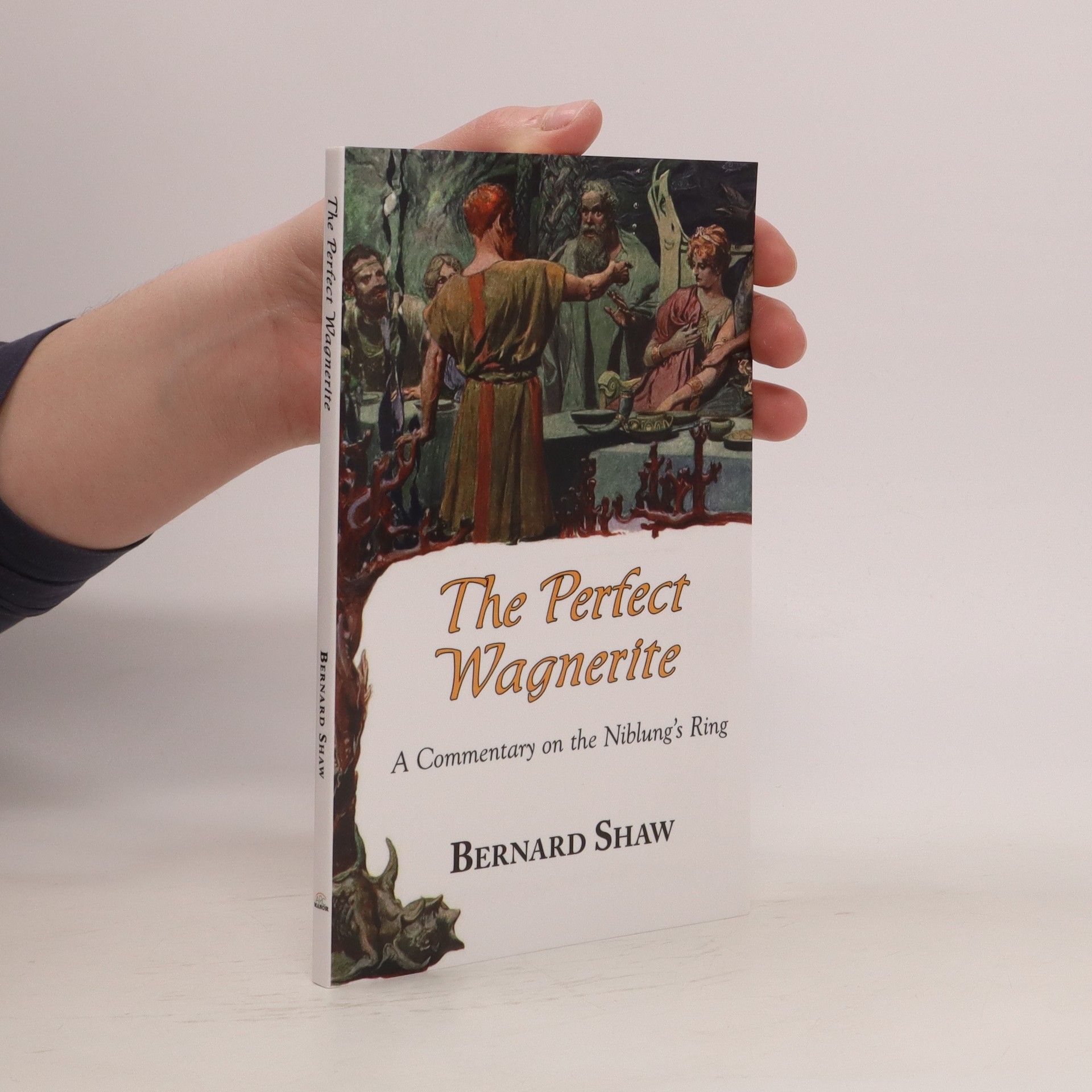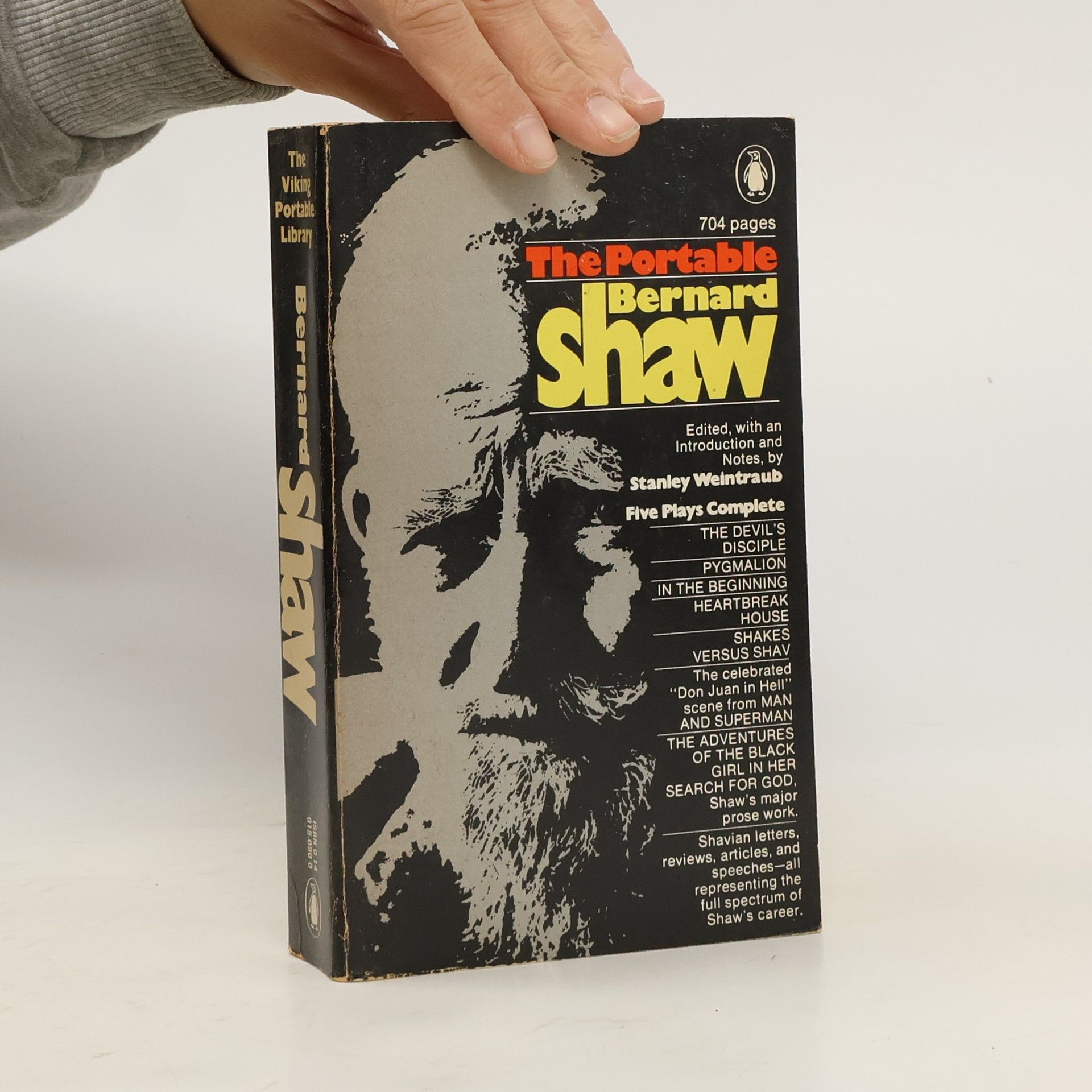Pygmalion, Heartbreak House, and Saint Joan are widely considered to be three of the most important in the canon of modern British theatre
George Bernard Shaw Books
George Bernard Shaw was an Irish playwright and socialist who focused on the social issues of his time. His plays, numbering over sixty, blend comedy with serious themes such as education, marriage, religion, and class privilege. A committed socialist, Shaw advocated for equal rights, the alleviation of the working class's exploitation, and promoted healthy lifestyles. His works continue to resonate with their wit and intelligence, though Shaw himself was famously averse to public accolades.







Please visit www.ArcManor.com for more books by this and other great authors.
The Complete Plays of George Bernard Shaw (1893-1921), 34 Complete and Unabridged Plays Including
Mrs. Warren's Profession, Caesar and Cleopatra, Man
- 1076 pages
- 38 hours of reading
Renowned for his sharp wit and incisive satire, George Bernard Shaw crafts plays that challenge societal norms and provoke moral contemplation. This collection features thirty-four of his most compelling works, showcasing his talent for exposing hypocrisy through intelligent and often humorous narratives. Readers can expect a thought-provoking experience filled with clever dialogue and biting commentary, making it a treasure trove for fans of classic theater.
The Man of Destiny
- 54 pages
- 2 hours of reading
An influential figure in drama, George Bernard Shaw was an Irish playwright and critic known for his over sixty plays that blend comedy with serious themes. His self-education and early struggles in publishing shaped his unique voice, leading to significant acclaim. Shaw's work often conveyed earnest messages beneath a humorous exterior. He is notably recognized for receiving both a Nobel Prize in Literature and an Oscar, highlighting his remarkable contributions to both literature and film.
The Philanderer
- 68 pages
- 3 hours of reading
Set in Victorian England, this satirical comedy delves into the complexities of relationships and gender roles through the character of Leonard Charteris, a charming and unconventional young man. As he navigates love, marriage, and fidelity, the play critiques societal norms and expectations, offering a humorous yet thought-provoking exploration of romantic entanglements.
George Bernard Shaw's public career began in arts journalism - as an art critic, a music critic, and, most famously, a drama critic - and he continued writing on cultural and artistic matters throughout his life. His total output of essays and reviews numbers in the hundreds, dwarfing even his prolific playwriting career. This volume of Shaw's Major Cultural Essays introduces readers to the wealth and diversity of Shaw's cultural writings from across the breadth of his professional life, beginning around 1890 and ending in 1950. Topics covered include the theatre, of course, but also music, opera, poetry, the novel, the visual arts, philosophy, censorship, and education. Major figures discussed at length in these works include Ibsen, Wagner, Nietzsche, Shakespeare, Wilde, Mozart, Beethoven, Keats, Rodin, Zola, Ruskin, Dickens, Tolstoy, and Poe, among many others. Coursing with Shavian flair and vigor, these essays showcase the author's broad aesthetic sensibilities, trace the intersection of culture and politics in Shaw's worldview, and provide a fascinating window into the vibrant cultural moment of the late nineteenth and early twentieth centuries.
Pygmalion - My Fair Lady
- 219 pages
- 8 hours of reading
The ancient Greeks tell the legend of the sculptor Pygmalion, who created a statue of a woman of such surpassing beauty that he fell in love with his own creation. Then, Aphrodite, taking pity on this man whose love could not reach beyond the barrier of stone, brought the statue to life and gave her to Pygmalion as his bride. Centuries later, George Bernard Shaw captured the magic of this legend in his celebrated play, Pygmalion. Pygmalion became Henry Higgins, a professor of phonetics, his statue an untutored flower girl from the streets of London, and the barrier between them is class.. Shaw expected Eliza to end up with Freddy and run a flower shop.In My Fair Lady, Alan Jay Lerner takes the legend one step further—the barrier is swept away and Higgins and Eliza are reunited as the curtain falls on one of the loveliest musical plays of our time—winning seven Tonys® for its original Broadway production, and seven Oscars® for its film adaptation.--back cover
The Portable Bernard Shaw
- 698 pages
- 25 hours of reading
The complete texts of The Devil's Disciple, Pygmalion, In the Beginning, Heartbreak House, and Shakes Versus Shav are combined with letters, articles, reviews, and other writings representing the spectrum of Shaw's career
O'Flaherty V. C.
A Recruiting Pamphlet
An influential figure in drama, George Bernard Shaw was an Irish playwright and critic who self-educated after moving to London. His career began with literary criticism before he turned to playwriting, producing over sixty works that blend comedy with serious themes. Notable for his wit and social commentary, Shaw is the only individual to receive both a Nobel Prize for Literature and an Oscar, highlighting his significant impact on both theatre and literature. His legacy continues to resonate through his thought-provoking plays.
A new collection of Shaw's major political writings presents an opportunity to reflect on his influential role as a public intellectual. At the forefront of economic and political debate from the 1880s to the 1950s, George Bernard Shaw was once the most widely read socialist writer in the English language, and his lifelong crusade against inequality and exploitation is far from irrelevant today. The thorough interpenetration of Shaw's literary and political engagements is an unusual story in modern literature, and this volume offers a portrait of Shaw as a political artist in the purest possible that is, as a writer of essays, articles, pamphlets, and books with explicitly and expressly political aims. The selected writings in this volume showcase Shaw's most influential and most accomplished political work, but also provide a cross-section that is representative of the whole of his long career.ABOUT THE For over 100 years Oxford World's Classics has made available the widest range of literature from around the globe. Each affordable volume reflects Oxford's commitment to scholarship, providing the most accurate text plus a wealth of other valuable features, including expert introductions by leading authorities, helpful notes to clarify the text, up-to-date bibliographies for further study, and much more.

